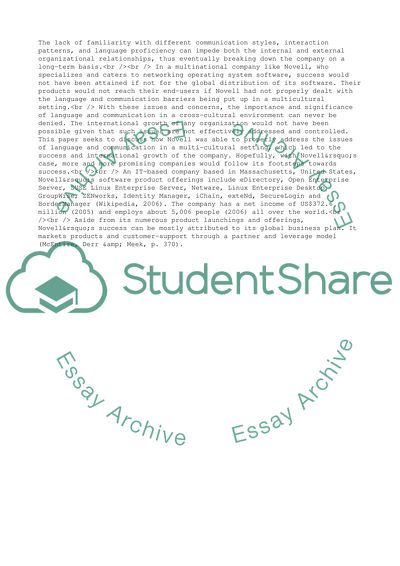Cite this document
(Cross Cultural Management of Novell Inc Case Study, n.d.)
Cross Cultural Management of Novell Inc Case Study. Retrieved from https://studentshare.org/management/1705373-cross-culture-management
Cross Cultural Management of Novell Inc Case Study. Retrieved from https://studentshare.org/management/1705373-cross-culture-management
(Cross Cultural Management of Novell Inc Case Study)
Cross Cultural Management of Novell Inc Case Study. https://studentshare.org/management/1705373-cross-culture-management.
Cross Cultural Management of Novell Inc Case Study. https://studentshare.org/management/1705373-cross-culture-management.
“Cross Cultural Management of Novell Inc Case Study”. https://studentshare.org/management/1705373-cross-culture-management.


